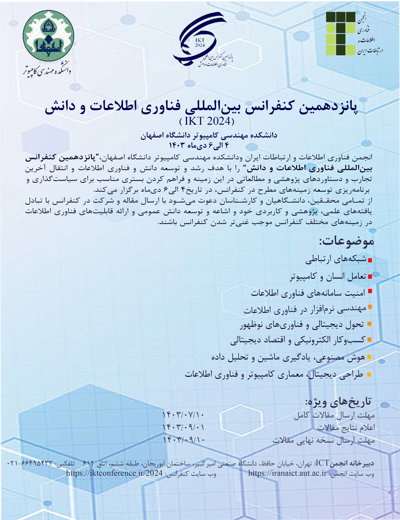0% Complete
Authors :
Keywords :
Abstract :
List of archived papers
Fatemeh Ahmadi - Mohammad Javad Parseh - Ehsan Amiri
Melika Mosayyebi - Reza Azmi
عفت تقی زاده بیلندی - آرش دلداری - علیرضا صالحان
دکتر محمد ابراهیم سمیع - ساره رحمانیان محمد ابراهیم سمیع - ساره رحمانیان -
ٍElham Alighardash - Dr Hassan Khotanlou - Vahid Pour Amin
الهام صالحی - دکتر محمدرضا کرمی ملایی - دکتر حسام عمرانپور الهام صالحی - محمدرضا کرمی ملایی - حسام عمرانپور -
علیرضا کبیری فرد - علی ولی زاده - مهدی مجیدپور
فهیمه شاهرخ شهرکی - رسول سامانی - دکتر ناصر قدیری فهیمه شاهرخ شهرکی - رسول سامانی - ناصر قدیری -
Tina Samizadeh Nikoui - Ali Balador - Amir Masoud Rahmani - Hooman Tabarsaied
مهدی علیرضانژاد - عمار عبیس حسین المعموری




